Simon Yates: Everybody has to attack Roglic now
Briton hoping to bounce back from Giro d'Italia TT setback
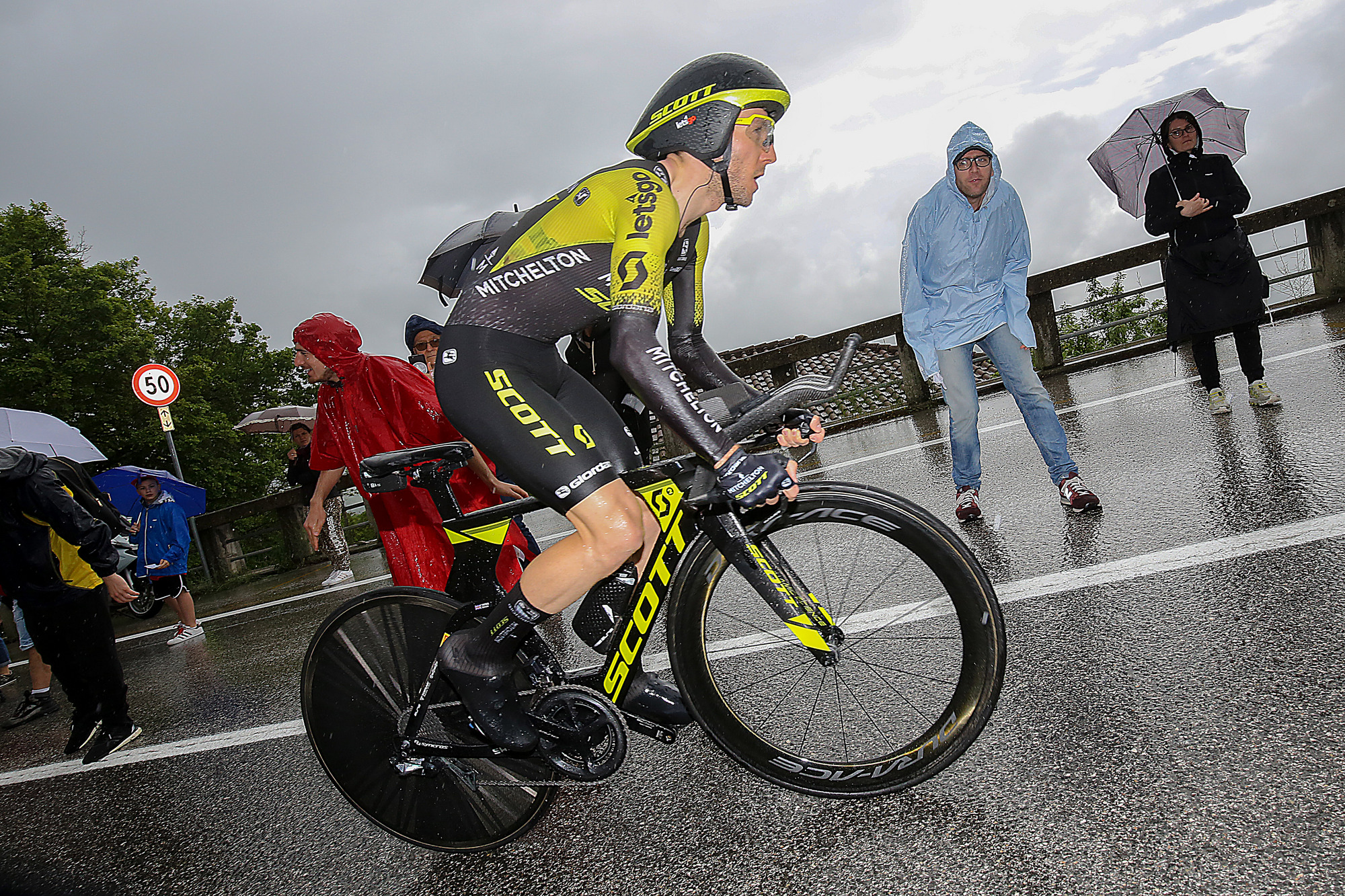
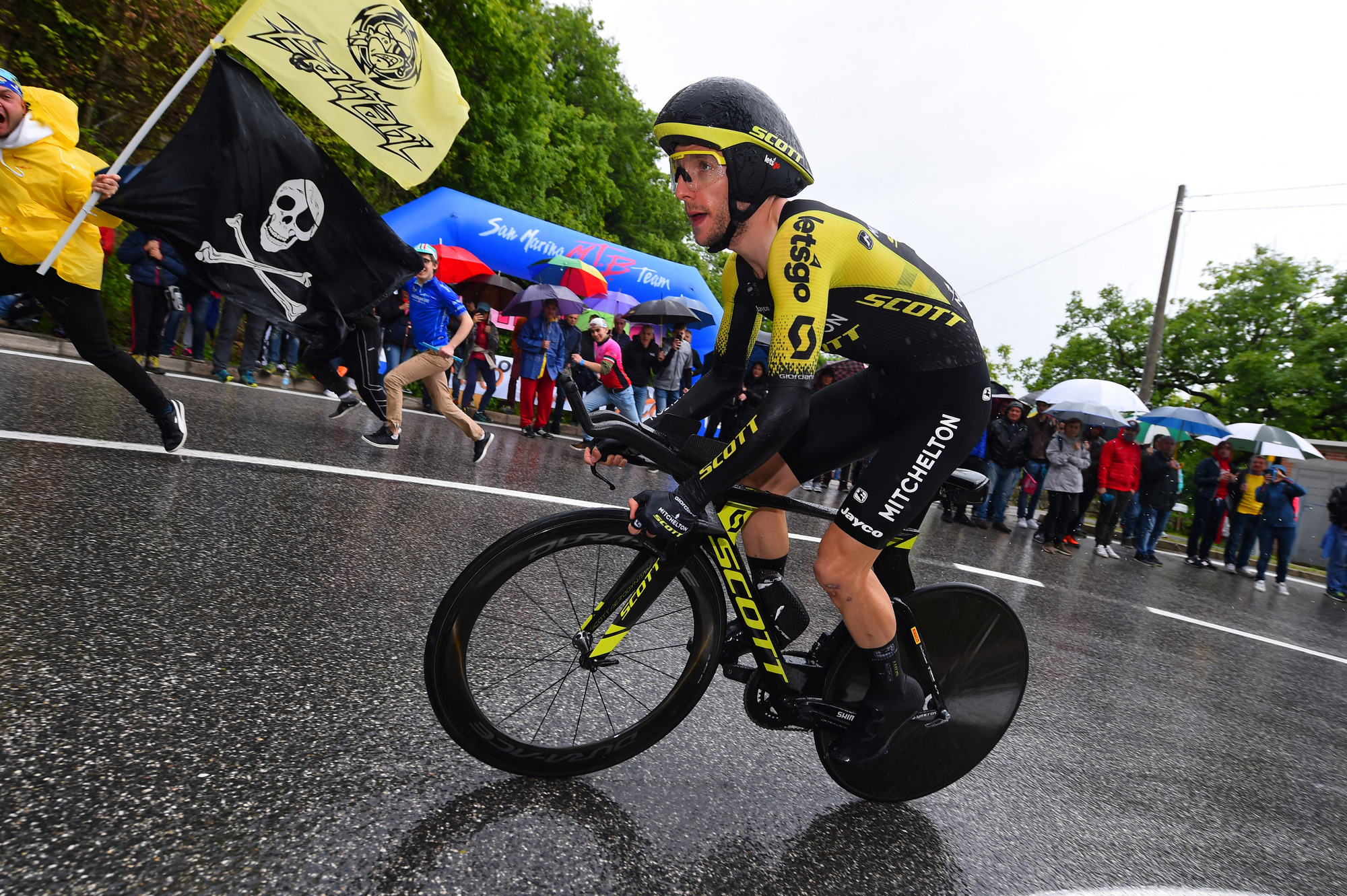
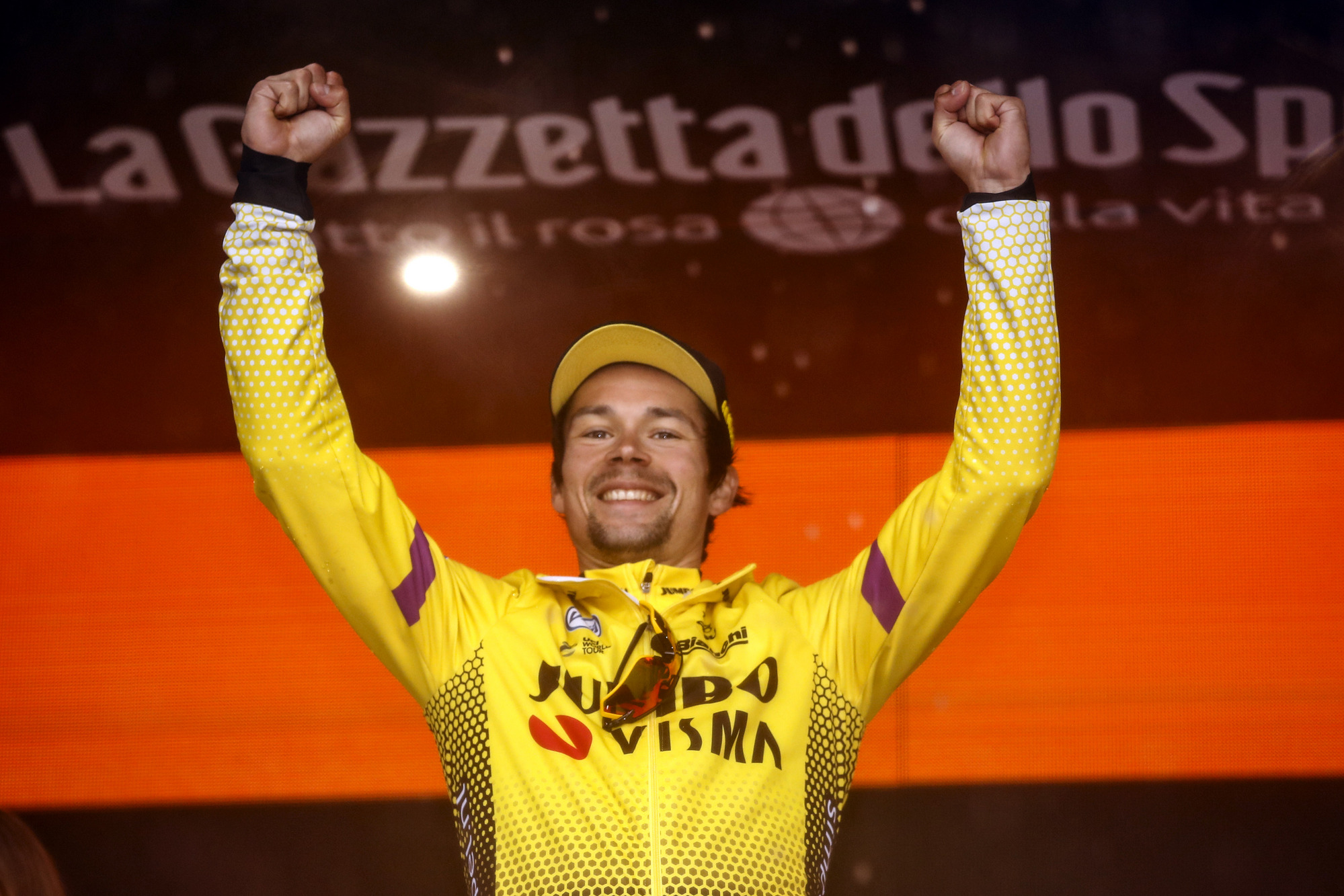
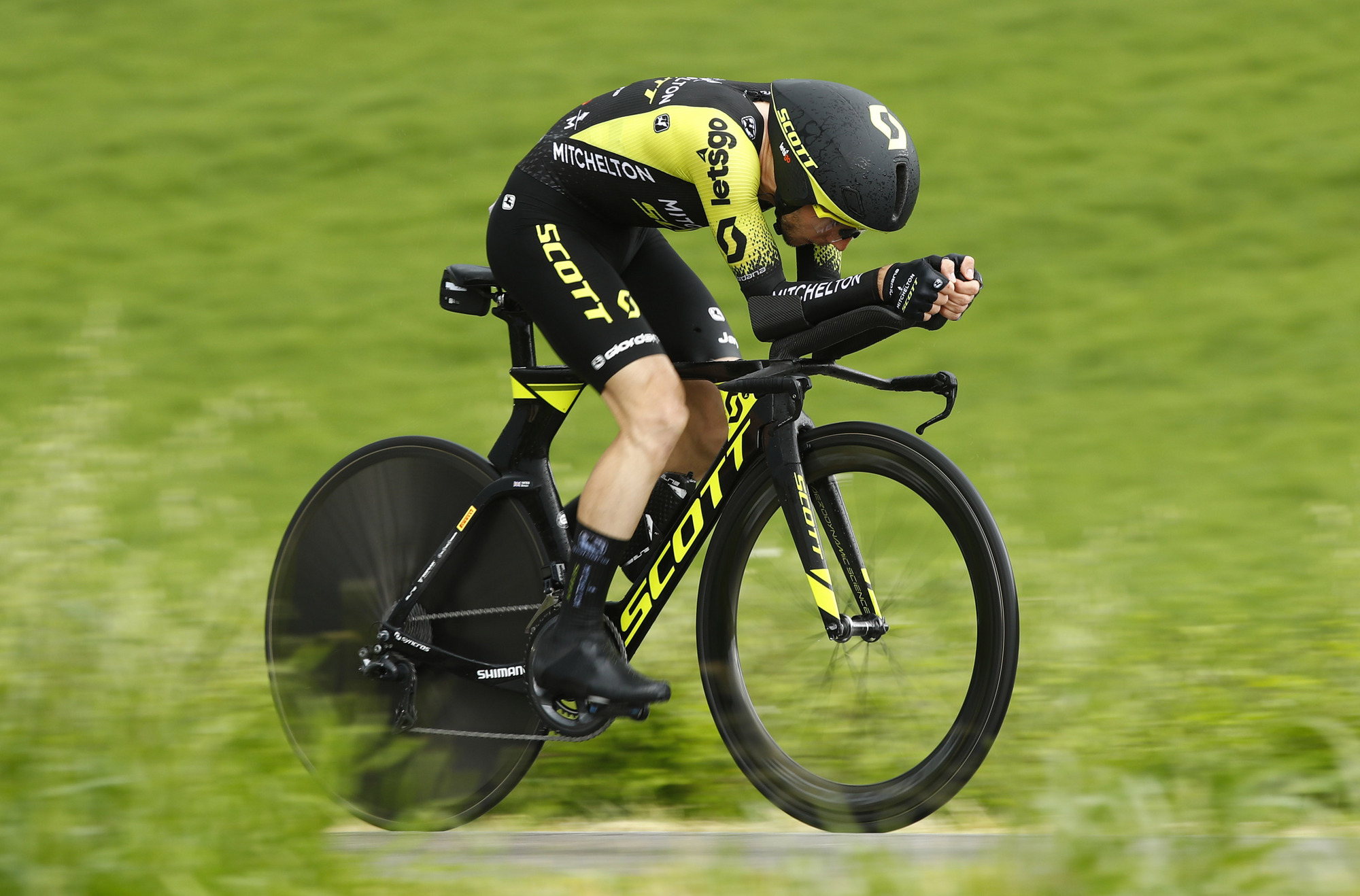
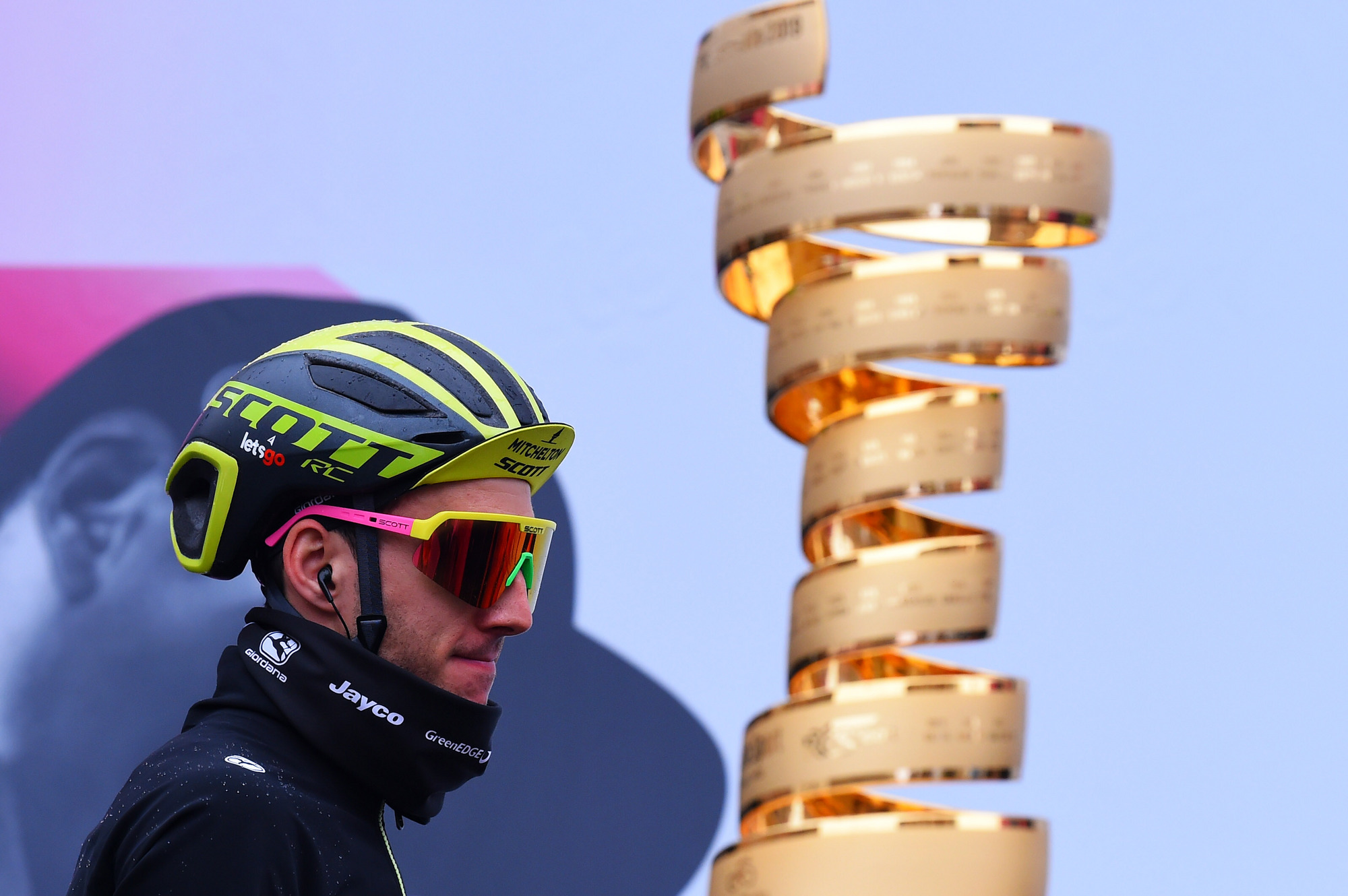
One of the more popular phrases from the recently-ended Game of Thrones television series is ‘either you win - or you die’. For Simon Yates (Mitchelton-Scott) and the other contenders for the Giro d’Italia, when it comes to taking on lead favourite Primoz Roglic (Jumbo-Visma), their strategy for the race’s final two weeks now boils down to logic of equally brutal simplicity: "either you attack - or you die."
Giro d'Italia: Roglic wins stage 9 as Yates loses major time
Giro d'Italia time trial 'a bit of a stinker' for Simon Yates
'No explanation' for Yates time trial defeat in Giro d'Italia, says White
Roglic: The Giro d'Italia isn't over until the finish line in Verona
Giro d’Italia: Rest day podcast with Dumoulin, Roglic and Ewan
With Roglic on the rampage in Sunday’s rain-soaked time trial to San Marino, Yates and almost all the rest of the contenders were faced with a far more serious defeat than they had bargained for in this particularly fraught episode of the Giro d’Italia GC battle. In Yates' case, the damage was such that he ceded over three minutes in a test where he had hoped to lose a minute at most.
So, as Yates explained on the Giro’s first rest day on Monday, the Briton will have no choice but to attack in the mountains if he wants to keep his bid for overall victory on track. And that goes for the rest of his rivals as well - barring, of course, the man currently tipped to reign the longest in the Giro’s equivalent of the Seven Kingdoms’ Iron Throne.
As for the time trial and how, after months of progress in that department, Yates’ body suddenly jammed in reverse gear on Sunday’s vital race against the clock, the Briton told reporters: "I set out with a strategy, just to ride slightly below threshold for the first part and then really squeeze it on the climb, which is what I would do normally anyway, but I got to the climb and I just didn’t have anything left.
"It’s not that I’d emptied the tank before; it’s just when I tried to stomp on the pedals I really didn’t want to move. My heart rate wasn’t going up so I don’t know what’s happened. It’s really disappointing for myself, personally."
So much for the how. As for why he struggled where he was expecting to show strongly, Yates said that, amongst possible factors, he had maybe "taken it a little bit too easily" in the days immediately approaching the Giro in a bid to be as fresh as possible for the start.
"We’re looking at almost two weeks ago, and that’s a seriously long time," Yates argued.
Get The Leadout Newsletter
The latest race content, interviews, features, reviews and expert buying guides, direct to your inbox!
As for how that could affect his form going forwards, Yates said: "In a way, I’ve not been doing anything here. I’ve been in the wheels all the way so far, and I’ve done big one effort so far - the prologue. I’ve not touched the wind yet.
"So if you look at it that way, I should have enough energy to last. It all depends on the situation, how the rest of the race goes, how my legs respond now.
"Maybe I had to detrain myself in these eight days [before the Giro] and I’m actually not going good anymore. But we’ll see how we go when we get there [to the mountains]."
The one rider to withstand Roglic’s TT onslaught was Vincenzo NIbali (Bahrain-Merida), losing only 65 seconds to the Slovenian, but Yates said he was not surprised by the Italian’s strong showing. It was, he added, the kind of performance he had been hoping to produce himself. Looking at his own situation, Yates recollected that he had found himself in a similar predicament in the 2015 Tour de France, which featured a very flat series of opening stages and then suddenly a seriously tough mountain stage. In other words, an overly straightforward start for Yates followed by a sudden, major challenge.
"We had 10 stages of nothingness and then we got the first mountain day in the Pyrenees and everybody was really bad, I think [Chris] Froome won by 1:40 or something to [Nairo] Quintana," Yates recollected.
"The rest were even more behind. That day I also had shit legs, a similar feeling [to Sunday]. But it’s the same for everybody else. I’m not trying to make excuses that that was the reason why I’ve gone badly here, but maybe that was one of the factors."
As Yates pointed out, in the last two Grand Tours he’s done, there was a big mountain stage in the first week, in the Granada sierras in the Vuelta a España and on Mount Etna in the Giro. Either way, Yates pointed out that, in the days that followed that one bad Tour de France stage four years ago, he was able to turn things around and get into some breaks.
As for the here and now in this particular Italian Grand Tour, with such a big time loss on Roglic, racing as ambitiously as possible in the mountains seems the only way to fight back. The only fly in the ointment for that particular solution, though, is that there are still two more stages of what Yates calls “nothingness” - at least in terms of his own personal interests - as well as a rest day, to get through before the mountains arrive. Either way, there is no sense that Yates will throw in the towel in the 2019 Giro.
"I’ve worked too hard to just give up already, so I’ll give it everything I got," he said. "If I come up short, then that’s ok. We’ve still got lots of things to work on so we’ll take it from there."
Asked if he has no choice but to attack, Yates replied: "It’s not just me in that position; a lot of the other guys are down as well. Roglic is looking very, very impressive. Everybody is going to have to attack him, so I can see the race becoming very aggressive - maybe not in the sprints, but as soon as we hit the mountains."
What could intensify that process of toughening up the Giro’s mountains stages is that his team have yet to use up any of their climbers, given there has been so little work for them to do so far.
Yates sounded sceptical, though, that Roglic might finally come unstuck in the Giro’s third week after being in top form for so long, since the end of February. It’s worth remembering that the Jumbo-Visma star has previous in this area. In the Tour last year, Roglic fared very well until almost the end of the race, before falling apart a little in the last time trial.
"He doesn’t look like he’s slowing down right now. He looks very, very impressive," Yates pointed out. "I don’t know, obviously I hope he does, but we’ll see."
In one sense, it barely matters. No matter how Roglic - or the rest of his rivals - are going, at this point in the Giro game, Yates' own strategy for the throne is not going to change at all: attack - or die.
Alasdair Fotheringham has been reporting on cycling since 1991. He has covered every Tour de France since 1992 bar one, as well as numerous other bike races of all shapes and sizes, ranging from the Olympic Games in 2008 to the now sadly defunct Subida a Urkiola hill climb in Spain. As well as working for Cyclingnews, he has also written for The Independent, The Guardian, ProCycling, The Express and Reuters.
